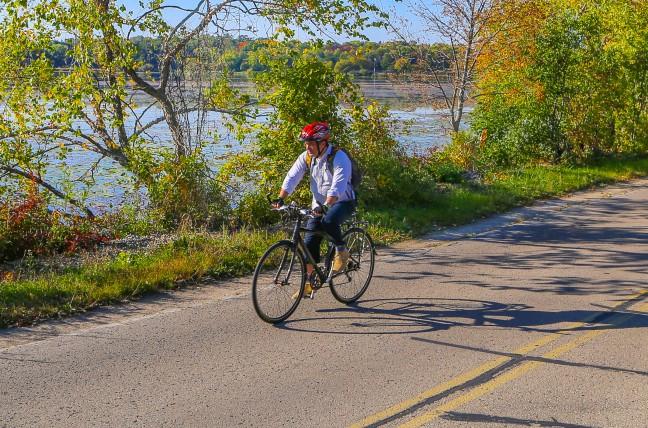Former Madison Mayor Dave Cieslewicz delivered a lecture Monday about bike planning and alternative transportation in urban environments.
Shannon Kim, an officer of the Urban Planning Undergraduates, which is a University of Wisconsin student club formed earlier this year, hosted the event to give students an opportunity to hear from an urban planning professional.
Cieslewicz — who said he first ran for mayor because of his interest in urban environments — then covered a variety of topics, including the environmental benefit of living in an urban area and efforts to increase bicycle use in cities.
“Just about everything you think about in terms of environmental degradation has its roots in land use and transportation and of course, land use and transportation are just two sides of the same coin,” Cieslewicz said. “At the heart of the environmental movement was a fundamentally anti-urban philosophy.”
Cieslewicz went on to disprove the assumption cities impact the environment negatively. He argued the concentration and density of population in urban areas, the need for automobile transportation and other resources use subsidies. In turn, this reduces an individual’s ecological impact.
Cieslewicz furthered his point with an anecdote about a couple who enjoyed a nature site so much they wanted to find a housing location there.
“It occurred to me that we’re missing something here — because if you love the Baraboo Hills and you understand why it’s important, the last thing you want to do is create more edge effects by building a house in the Baraboo Hills,” Cieslewicz said. “If you love the Baraboo Hills — visit it, but do not live there. Live in the city. Living compact and living urban means that you’re going to have a smaller footprint on the environment than if you live someplace on a five-acre lot.”
In 2005, during Cieslewicz’s time as mayor, the League of American Bicyclists, which rates communities based on their “bicycle friendliness,” awarded Madison with gold. Cieslewicz, however, wanted platinum.
One committee, dozens of recommendations and nearly ten years later, Cieslewicz finally reached his goal.
During the question and answer portion, one student asked about the current relationship between Verona and Madison. Young people employed in Verona commonly choose to live in Madison and commute because the city offers more activity.
Cieslewicz compared this to the relationship between Silicon Valley and San Francisco. He acknowledged how this has led to gentrification, but also said the arrival of intelligent, young people may not be that much of an issue.


